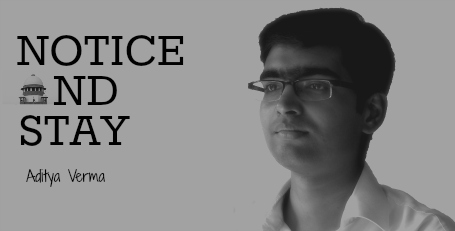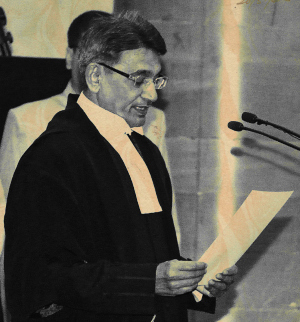 There is a theory that legislation in support of compulsory military service for those who turn eighteen is very easy to get popular support for. Those who vote on it will never be directly affected by it, and those who will be directly affected do not have a vote. Lawyers as a class do not tend to get much public sympathy either (one wonders why!). It should come as no surprise then that the debate about scrapping court vacations has been publicly characterised as “lawyers (who oppose the proposal) versus everybody else (litigants and judges)”.
There is a theory that legislation in support of compulsory military service for those who turn eighteen is very easy to get popular support for. Those who vote on it will never be directly affected by it, and those who will be directly affected do not have a vote. Lawyers as a class do not tend to get much public sympathy either (one wonders why!). It should come as no surprise then that the debate about scrapping court vacations has been publicly characterised as “lawyers (who oppose the proposal) versus everybody else (litigants and judges)”.
Such a characterisation does not do justice to the gravity of the issue at hand. The suggestion of the Chief Justice of India is a serious one and deserves thoughtful consideration. Instead of it being a concrete debate with number and figures, what we have today are platitudes about docket backlog, interspersed with remarks about how lawyers love their vacations (they do, nothing wrong in that!) and whether they deserve them (which is the wrong question).
The correct question is about defining clear targets for the legal system to improve the pace and quality of delivery of justice. Despite its abstract moral grandeur, administration of justice is ultimately a service provided by the State. Different courts deal with different kinds of cases and have varying levels of docket backlog. Consequently, strategies to reduce case pendency have to be court-specific. From this perspective, the process of consultation initiated by the Chief Justice is a welcome step. However, if responses to the consultation process are limited to the question of doing away with court vacations, it will be difficult to assess the success of such a measure in reducing case pendency due to the absence of specific targets.
Our collective aim must be to reduce case pendency without compromising on the quality of administration of justice. The length of vacations (or their absence altogether) is only an instrument to that end. The proposal of 365-day courts is only a skeletal one at the moment, which raises legitimate concerns for advocates in particular. When can an advocate travel out of station? What would the court’s policy be on granting adjournments if an advocate is away on holiday? Will there be different standards for Advocates-on-Record? Will this make it more difficult for clients to rely on individual practitioners (as opposed to larger law firms where one advocate may be able to step in for another more readily)?

If a court-specific approach is adopted, naturally, the best place for the Chief Justice (together with the Ministry of Law and Justice) to start tackling case pendency will be the Supreme Court. Numbers and figures of case pendency for the Supreme Court are relatively easily accessible. The next step in the debate should be to identify the kinds of cases which merit priority (for instance, criminal and matrimonial cases), and publicly communicate statistically achievable overall targets of case disposal in the short and medium-term.
If meeting these targets requires reducing vacation periods, appointment of more judges and increasing their retirement age, ad hoc appointment of retired judges for specific cases, tweaking the daily working hours of the Court, altering the weekly split between ‘miscellaneous’ hearings and regular hearings, detailed ‘case management’ hearings in complex cases (illustration here), strict and consistent policies on adjournments, or even increasing the capacity of the Supreme Court registry, then those measures should be adopted. Without having particular outcomes in mind we can be sure that we will never fall short. Nor will we know how much we should have achieved!
(Aditya Verma practices as an Advocate at the Supreme Court of India. He is an alumnus of NLSIU, Bangalore, and is on the roll of solicitors in England and Wales.)
